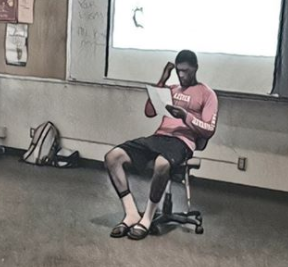Students have already read and analyzed a variety of poems and images that illustrate the Banking Concept and Problem Posing Modes of education. Those clips are included on the below Padlet, the ones labeled "Henry A." For this particular assignment, a student looked for their own resources and had to explain in writing how those resources illustrate Freire's ideas.
This Padlet task supports the "big essay" assignment on Freire's ideas. Students have two options for the prompt: "The kind of education I deserve" and "The education that Southwestern College students require to solve our community's problems." Freire's two modes of education serve as our "theoretical framework" to help students articulate their answers, answers they've already been addressing for a few weeks previously (see previous entry titled "Writing as a Pre-Reading Strategy").





